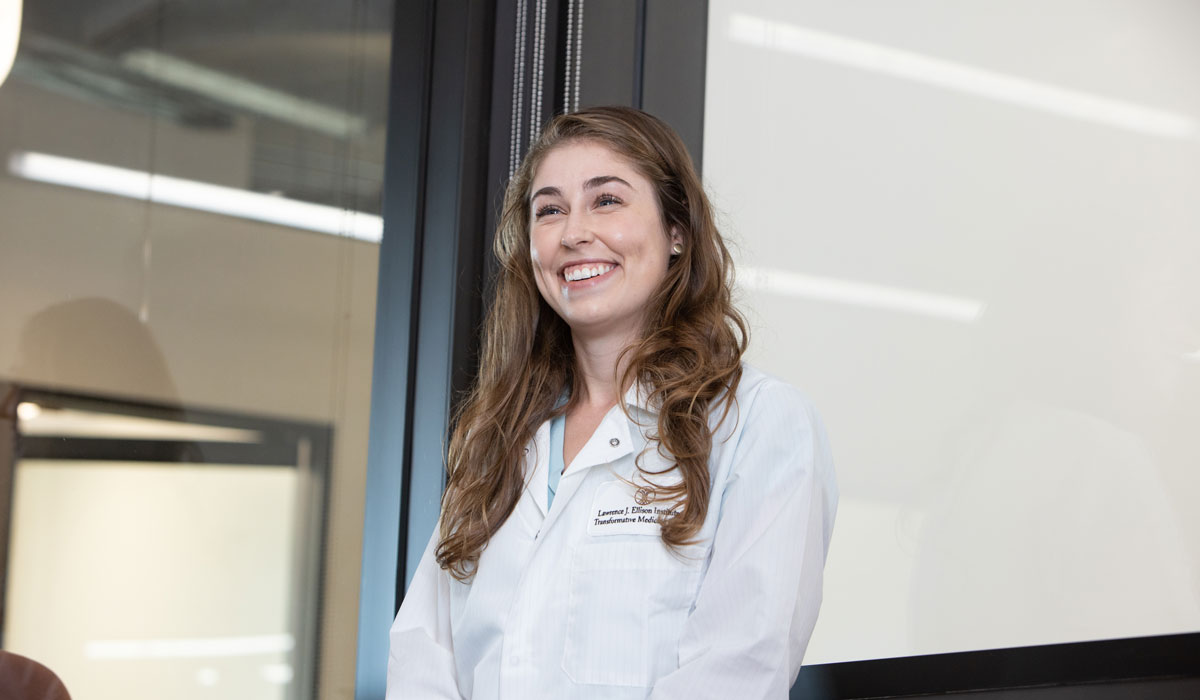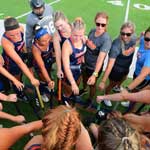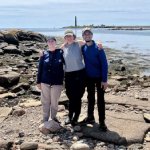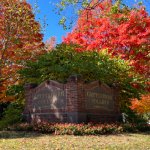

Carly Strelez ’14 is interested in how different avenues of knowledge intersect and inform one another. This was a powerful motivator for her in choosing a liberal arts and sciences education at Gettysburg College, where interdisciplinary learning is placed front and center.
“I’ve always enjoyed connecting the dots,” said Strelez, a biochemistry and molecular biology (BMB) major who recently graduated with her PhD at the University of Southern California in 2021, where she combined biology with engineering to study colorectal cancer. “The interdisciplinary, liberal arts approach at Gettysburg is a phenomenal way to use your brain and ensure you’re not thinking in a myopic way, but can draw from multiple experiences to better inform your thinking.”
When considering Gettysburg for her undergraduate studies, the Connecticut native was impressed by the College’s BMB major that merges studies in biology, chemistry, mathematics, and physics. She loved that she could choose an interdisciplinary science major, add in her passion for neuroscience through a minor, and still be able to pursue her non-science interests, like music.
Today, Strelez has purposefully decided to continue this manner of multidimensional learning through USC’s Lawrence J. Ellison Institute for Transformative Medicine, where she is part of a research team investigating an organ-on-chip model of colorectal cancer. An organ-on-chip is a multi-channel 3D cell culture chip that simulates the activities, mechanics, and physiological response of organs and organ systems.
Strelez’s research simulates the workings of the intestines to understand how the tumor microenvironment might influence early metastatic spread. She analyzes how peristalsis—the involuntary constriction and relaxation of the muscles of the intestine that happens when your food moves through your body—impacts colon cancer.
“We’re specifically looking at how the mechanical forces of peristalsis impacts the aggressiveness and the invasiveness of colon cancer, which is a pretty new concept,” explained Strelez, who was intrigued how the organ-on-chip technology pushed the boundaries of cancer research. “[The Institute’s interdisciplinary] approach seeks to look at how cancer biology happens on a 3D organ level scale rather than just within particular cells in a Petri dish, which is how it’s been traditionally studied.”
“The Gettysburg approach has undoubtedly made me a better scientist and researcher.”
– Carly Strelez ’14
At Gettysburg, Strelez’s appetite for knowledge exploration through diverse pathways—interdisciplinary learning, hands-on research experiences, extracurriculars, and international travel—was satiated. She took a wide range of courses in her major and minor, while also taking French courses and participating in the Sunderman Conservatory of Music. She traveled to China and Singapore as a member of the Wind Symphony orchestra to perform concerts.
“One of the best things I did at Gettysburg was get involved with the Conservatory,” Strelez said. “They were always flexible to ensure I could participate while still conducting labs and research. I love how music opens my mind and helps me think in different ways. Without a liberal arts education, I’m not sure how much music I’d have has an undergraduate.”
Strelez is quick to mention that her ability to take advantage of a range of opportunities and learning experiences didn’t diminish the strength of her science training.
“There’s often this misconception that you can’t get an amazing foundation for a science research career at a liberal arts institution, but nothing could be further from the truth,” she said. “I am such a fan of the Biology and Chemistry Departments at Gettysburg. They pushed me to think critically and see problems and solutions from multiple angles. Their guidance, and my diverse experiences outside of my science courses, set me up perfectly for success in research and my PhD program.”
Another strength of a liberal arts and sciences experience, Strelez added, is the quality of the relationships you build with professors and mentors. For her, Chemistry Prof. Shelli Frey, recently named to the Bowers and Louise Hook Mansdorfer Professorship in Chemistry, was a powerful mentoring force.
“Dr. Frey is a phenomenal mentor and a great scientist,” said Strelez. “For one year, I assisted her on a research project looking at the properties of a particular surface action protein derived from frogs. The purpose was to see if the protein could be used as crop preserver to help protect them from the elements. I learned so much working beside her.”
To this day, Strelez credits Gettysburg for sharpening her skills to think critically, doubt assumptions, and fearlessly pursue answers through innovative, multidisciplinary approaches. For those interested in the sciences with a liberal arts and sciences foundation, she said to go for it: “The Gettysburg approach has undoubtedly made me a better scientist and researcher.”
Learn more about Gettysburg’s transformative approach to its liberal arts and sciences education.
By Katelyn Silva
Photo by Randy Shropshire Photography
Posted: 04/25/22


